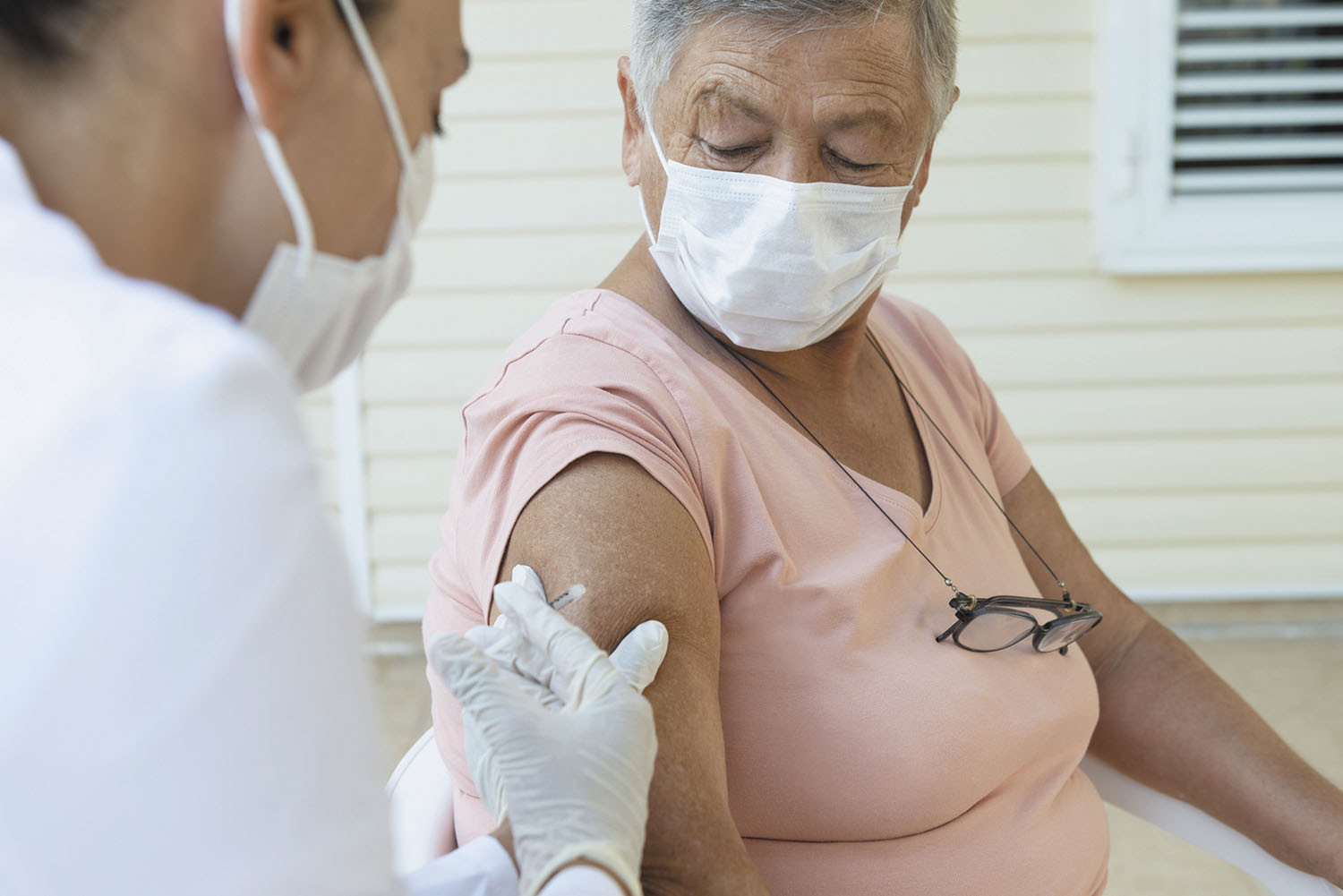
How — and why — to fit more fiber and fermented food into your meals

UTI in older women: Why postmenopausal women are susceptible to urinary tract infection, and what to do about it

Can a routine vaccine prevent dementia?

Some adults may need a measles booster shot. Who should get one and why?

Less butter, more plant oils, longer life?

Healthier planet, healthier people

Counting steps is good — is combining steps and heart rate better?

Appendix pain: Could it be appendicitis?

Can saw palmetto treat an enlarged prostate?

How does Ozempic work? Understanding GLP-1s for diabetes, weight loss, and beyond
Staying Healthy Archive
Articles
The humble gallbladder
The gallbladder stores bile from the liver and squeezes it into the small intestine to help digest fats. About 15% of American adults have gallbladder disease, most commonly gallstones. Women are more prone to gallstones because estrogen slows the gallbladder's ability to empty. Serious complications can result from gallbladder disease, including inflammation, infection, and blockages. People can reduce their risk for gallbladder problems by eating more fruits and vegetables, favoring lean proteins, and maintaining a healthy weight.
Preparing for success in the operating room — and beyond
Prehabilitation, or prehab, involves a wide range of steps to take before surgery to maximize recovery afterward. Prehab components include nutritional support, strength and fitness, blood sugar control, medication management, smoking cessation, pain management, and delirium prevention. Research suggests prehab can increase the odds people will heal faster, experience fewer complications, and recover more smoothly over all.
Emergency care visits after cannabis use rising among older adults
A 2023 study found that cannabis-related visits to hospital emergency departments skyrocketed among adults ages 65 and older from 2005 through 2019.
Why won't my primary care doctor oversee my hospital care?
Increasingly, hospitalist doctors (who are present in the hospital 24 hours a day) take care of hospitalized patients, with advice from the patients' primary care doctors. This helps solve the dilemma of primary care doctors needing to be in two places at once—in a hospital with some patients and in an office with others. It's not a perfect solution: hospitalists often don't know the patients they're caring for, and they are unfamiliar with patients' extensive medical records. But ultimately, the increasing number of hospitalists is probably improving the quality and efficiency of hospital care.
What should I ask at my annual physical?
An estimated 32% of Americans delayed routine medical care during the pandemic. People resuming their annual physicals should ask their doctor if they need vaccinations, screening tests, prescription changes, or lifestyle modifications to improve their health.
Is biting my nails really that bad?
Nail-biting can introduce germs into people's mouths that can cause a range of illnesses, including colds or salmonella. The habit also creates tiny fissures in skin that can become infected. People who bite their nails should occupy their mouth and hands with other tasks.
Caregivers: You deserve a break
Caregivers may benefit from substitute caregivers who can give them a break. This "respite care" might come from a family member or friend who volunteers to help out. Or it can come from outside services such as adult or child day care centers, short-term stays (seven to 30 days) in a skilled nursing or memory care facility, professional child care or nanny services, or private duty care (which can send someone to be with a loved one up to 24 hours per day).
Is alcohol and weight loss surgery a risky combination?
For people with obesity, weight-loss surgery can reverse or greatly improve many serious health issues, but also leaves people more likely to develop an alcohol use disorder. A new study finds that one type of surgery may increase the dangers of drinking much more than other weight-loss strategies.
Why do we need new flu shots every year?
With influenza virus, a new vaccine must be developed each year to adapt to the virus's changing structure.
Is snuff really safer than smoking?
The FDA authorized a brand of smokeless tobacco to use language in its advertising claiming that using snuff reduces risk of lung cancer compared to smoking cigarettes. Technically this is true, but it's not the health advantage the product's maker would like consumers to think it is.

How — and why — to fit more fiber and fermented food into your meals

UTI in older women: Why postmenopausal women are susceptible to urinary tract infection, and what to do about it

Can a routine vaccine prevent dementia?

Some adults may need a measles booster shot. Who should get one and why?

Less butter, more plant oils, longer life?

Healthier planet, healthier people

Counting steps is good — is combining steps and heart rate better?

Appendix pain: Could it be appendicitis?

Can saw palmetto treat an enlarged prostate?

How does Ozempic work? Understanding GLP-1s for diabetes, weight loss, and beyond
Free Healthbeat Signup
Get the latest in health news delivered to your inbox!
Sign Up











